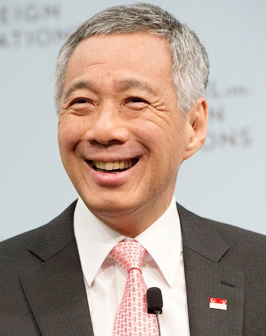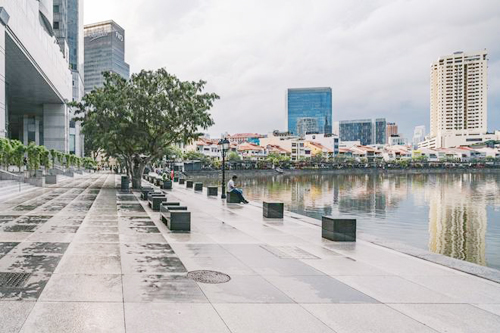In Times Like These, what can an NTO do? Just wait and watch? Get pro-active but how? One NTO is sending us press releases regarding what you can still do, today, if you were there in that city. The trouble is you can’t be there! With airports shut and airlines grounded, with stay at home diktat being followed strictly, the world is grounded. Till at least April 15th, and even then, assuming restrictions easing, when will people be in the mood to travel out?
At least one NTO we spoke with, Srithar of Singapore Tourism, shared how the situation changed dramatically over the last few weeks in this month. First, they were sharing advisories on what travelers must keep in mind. But within no time, there was a total clampdown. Presently, no short-term travel was permitted into Singapore and the country was in waiting mode. Indian airports are shut and so are the flights. So, we have a zero-travel situation. Therefore, Srithar said, all he could do was to share concern, and stay in touch with his travel partners, which is what he is doing. Working from home, the STB team in India was staying grounded, and staying in touch!
Said Srithar, therefore, what he and his team could do now was to reach out to STB’s travel trade partner-friends and express their solidarity with them. In a Letter of Unity sent out last week, he shared his concerns and the need to hunker down for some really tough times. And prepare for the uptake and recovery when it comes. The STB, he said, is determined to continue its trade engagements in India – through email / digital connections. Working from home, the STB India team continues to stay engaged and growing its connections with the travel fraternity.”
Meanwhile, we got access to a recent interview given by the Singapore PM, to Channel TV Asia, which was illuminating for its straightforward approach, transparency and how it also concerns tourism, aviation and trade, three central pillars around which the Singapore economy has been structured. Here are some highlights:

“We are in a very grave situation. Health-wise, with a COVID-19 pandemic. Economy-wise, with the impact on economies all around the world and on Singapore. Also, in terms of the cohesion of the society, the confidence and response which is necessary. It is absolutely crucial for us to hold together, to respond effectively to the immediate challenge and also to give people confidence that we can cope with this – we have the resources, we know what we are doing, we are ready for what lies ahead. And what lies ahead is very uncertain. Many possibilities, which are very worrying. We have to be prepared for them and we must be ready if it comes, we are able to respond to them.
On the health side, the COVID virus. My analogy is that tide has not turned. We have been fighting, and the tide is still coming in. What has changed is that we have put up our dykes, we have held the water out, but the dyke leaks. We have got bits coming in, people coming home, the virus gets into Singapore. We have to keep a very vigilant eye on it continuously and make sure that every drop which comes in we mop it up quickly before a drop becomes a rivulet, a rivulet becomes a stream, then I have a flood and we are sunk.

All around the world that is happening, that hits us, and in Singapore, it hits us particularly hard because we are so dependent on trade and our industries like aviation, tourism, travel, hotel, I mean business has gone to zero. SIA’s business had gone down by 96 per cent. It has come to a halt. This is not going to go away in a hurry, because we are protecting our borders until everything calms down. Other countries are doing that.
China, having brought their cases down to zero, have now instead of relaxing controls on their borders, have now put up more stringent border protections around themselves, because they are dead scared of COVID-19 coming back into China. That is all going to affect the civil aviation industry as well as globalised economies like Singapore. It is going to last quite a long time.
The cost side, we can do a lot because wages for example – we have the job support scheme across the economy is 25 per cent of wages. For the tourism industry, it is 50 per cent of wages, for travel and aviation it is 75 per cent of wages. That is a huge amount of money, and I think it makes up about S$15 billion out of the package yesterday, one third. That we can continue. If you are looking at rentals and costs like property tax, that also we have a lot of flexibility to continue to use those as means to help people.
What is difficult for us to do is to bring back the business when there is no business. If I have to lock down the public entertainment, then is very difficult for the discos to operate. It is very difficult if you are a DJ, where do you get your gig? If there is no international flights, because other countries have locked down their borders, then it is very difficult to keep SIA pilots and crew flying. If they are not flying, they do not get their flying allowances, and that is 60 per cent of their pay. It is a very substantial hurt to them.
There will be other impacts like that which is going to be very difficult for us to completely neutralise. What we can do is to find ways in which to redeploy the people who are now freed up. While their day job is not there, but SIA as an organisation is a very capable organisation. Their people are very good, they know how to do service and I am sure we can use them elsewhere. Whether we are using the organisation to do contact tracing, or whether we are using them to be guides, to be encouraging people to keep social distance and to have the right behaviour in public places.
I think it is a very difficult decision because we are going into a very big storm and you want to have the strongest team and mandate, and the longest runway so that Singapore can have the best leadership to see it through this storm.
If we were sure that the thing could settle within the next six months, I think we can say well, let us wait for six months, let things calm down, then we carry on. But nobody can say. I expect that it can easily get worse before it gets better.”